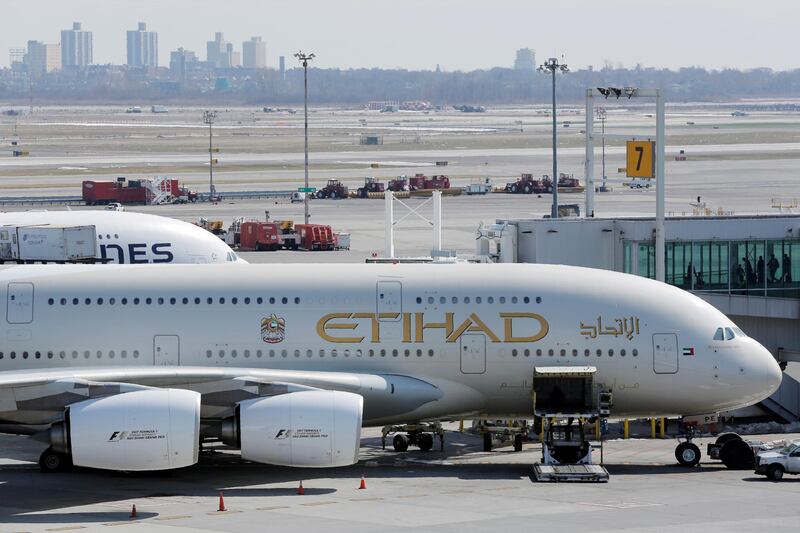Etihad Airways said it was disappointed with American Airlines' decision to end its codeshare agreement with the Abu Dhabi-based carrier because of the row over alleged subsidies given to Arabian Gulf airlines.
“We view the decision by American Airlines as being anti-competitive and anti-consumer,” said Etihad. “This action will reduce choices for consumers and may result in higher fares for travellers to and from the United States.”
American Airlines said yesterday it was ending its codeshare agreements with Etihad and Qatar Airways over the subsidies dispute. The codeshare agreement, which has been in place since 2009, will end on March 25, 2018.
American, along with the two other US airlines, Delta and United, have long accused the "Big Three" Gulf airlines, Etihad, Emirates and Qatar Airways, of receiving subsidies from their respective governments and have demanded the US “open skies’’ policy with the airlines be revoked.
The Americans have alleged that Gulf governments had provided US$42 billion in subsidies to their airlines, contrary to open skies aviation agreements.
The three airlines have denied the charges, arguing they generate US jobs and contribute to the country’s economy.
Last year, Etihad issued a report commissioned from the UK economics research organisation Oxford Economics, arguing that its contribution to the US economy, including all the business related to the passengers it ferries to six major US cities, was nearly $11bn a year.
The three Gulf carriers are also the largest buyers of Boeing’s new long-range aircraft – the 777X – outstripping their US rivals by far.
Etihad said that its six daily flights to the United States in no way threatened American Airlines, which operates 6,700 flights each to 350 destinations in 50 countries with its regional partner American Eagle.
"Etihad Airways and many of the leading consumer and business groups in the United States have categorically rejected the allegations of American and the two other dominant US carriers regarding violations of the relevant air transportation agreements," the airline said.
The end of the codeshare between American Airlines, Qatar and Etihad does not, however, mean the complete end of the relationship between the US carrier and the two Gulf carriers.
"It has been difficult for American Airlines to justify its campaign against Gulf airlines with the fact it has codeshares with Etihad and Qatar and has in fact been growing codeshares since the debate began," said Will Horton, a senior analyst at the Centre for Aviation.
"Yet American Airlines management is still conflicted. Ending codeshares is not an end to its partnership with Etihad and Qatar. American will still have interline access with Etihad and Qatar. Interlines are a simpler form of cooperation and are not as flexible as codeshares."
An interline agreement is a deal between two airlines that allow customers to fly to a destination using both their airlines. It can include an arrangement to handle luggage.






